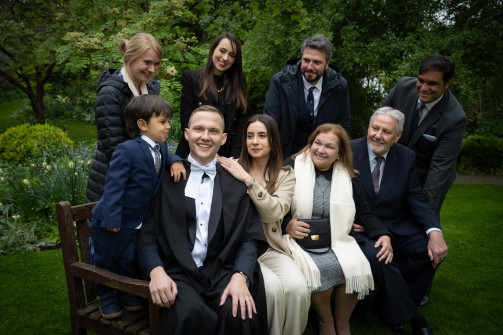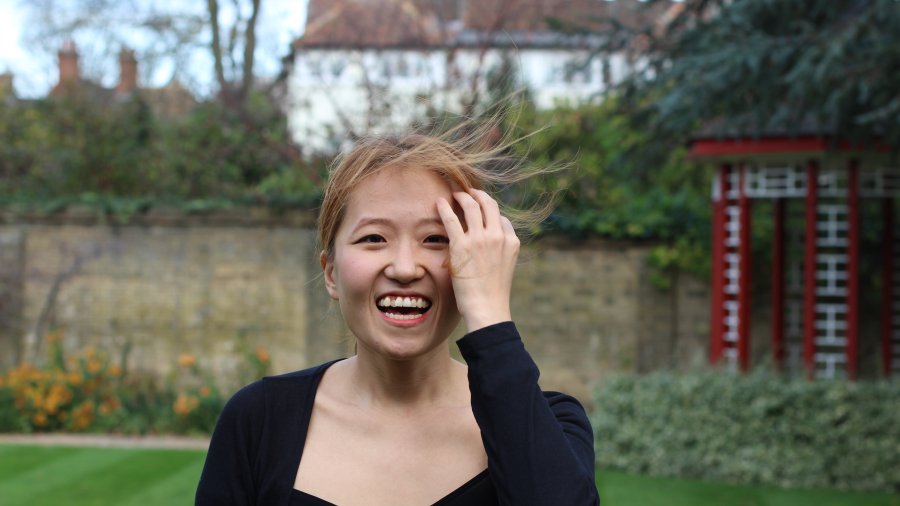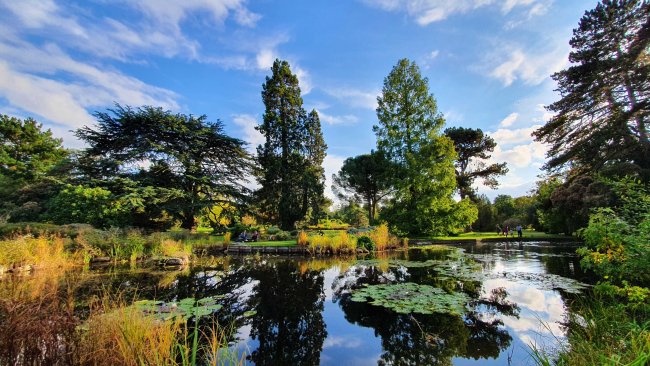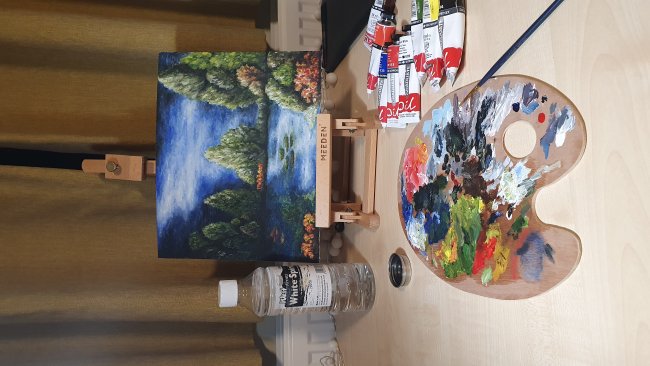Celebrations at April graduation

Meet PhD student Jisoo Kim, recipient of a PDN studentship for her neuroscience work on vision

This week, we are featuring three PhD students who received studentships in Physiology, Development and Neuroscience as a result of the Wolfson College - PDN funding award.

Jisoo Kim is in the third year of her PhD in Neuroscience. She was born in Italy and raised in South Korea, and has always been interested in the way that neuroscience can contribute to philosophical questioning and debate. Through her PhD study of two specific visual areas, she hopes to contribute to knowledge around visual perception and visual impairments.
Can you summarise your route to Wolfson? What did you do before starting your PhD here?
I was fascinated by neuroscience, especially because it can provide insights into philosophical questions, such as how we perceive the world. As an undergraduate at Korea University, I joined the Neuroscience Society called New-Learn, where I dedicated myself to conducting psychological experiments.
I also worked as a graduate researcher at the Korea Institute of Science and Technology (KIST), which broadened my research skills. My master's supervisor at Korea University, Professor Jeehyun Kwag - who had also conducted post-doctoral research at the University of Cambridge - encouraged and provided valuable advice for my PhD application to Cambridge.
Can you explain your project in simple terms? Why is your topic important?
My project, 'Visual Perception With and Without Awareness,' was inspired by the blindsight phenomenon, where individuals with damage to the primary visual cortex (V1) can still respond to visual stimuli without being consciously aware of them. Another visual area, the superior colliculus (SC), is known to contribute to detection in blindsight. My research examines the different roles of these two visual areas, the V1 and the SC, during visual tasks.
By selectively inhibiting each region, I examine the changes in behavior and brain activity during visual tasks. This research has the potential to enhance our understanding of visual perception and provide insights into visual impairments in neurodevelopmental disorders.
How did it feel to be awarded the Wolfson College-PDN scholarship?
I still vividly remember receiving the Wolfson College-PDN scholarship. Although I had an offer from the University of Cambridge, receiving a scholarship was essential to my attendance. After the scholarship interview, the thought of potentially missing out on the greatest opportunity of my life filled me with anxiety.
A few days later, when I received the email confirming the Wolfson College-PDN scholarship, I couldn't contain my excitement - I began to scream and jump around in my house. Initially confused, my family soon joined in the celebration. That moment is the happiest and most memorable of my life.
Why are scholarships in this field important?
In neuroscience, advanced training in complex techniques is crucial. Students need to join labs to gain experience with cutting-edge technology. Scholarships are vital for those aiming to conduct neuroscience research, enabling them to contribute to our understanding of the brain.
What are your impressions of the College and its atmosphere?
I feel incredibly fortunate to be part of Wolfson College, which offers incredible support to its students. When I got COVID, the porters and staff kindly delivered meals and parcels directly to my door, allowing me to continue with my drawing. Additionally, when I developed Ramsay Hunt Syndrome, causing facial paralysis, hearing loss, and impaired balance, I received incredible support from the Wolfson community (especially Senior Tutor Dr. Susan Larsen and my tutor Dr. Nigel Kettley), the PDN department (especially Aileen Jordan and Olivia Speed), and my supervisor Dr. Jasper Poort. I am deeply grateful for their care.
How did you find settling into Cambridge life?
I find Cambridge and Wolfson peaceful and conducive to study, yet vibrant for social activities. Wolfson College, especially, is known for its vibrant community life and events such as BOPs (Big Organised Parties), karaoke, and comedy nights that bring students together. This is why I chose to return and live on-site this year.
Are you hoping to pursue any societies or extra-curricular opportunities this year?
I attend Wolfson's Yoga classes, which helps me relieve stress and stay flexible. I previously enjoyed long-distance cycling, including a memorable 110km journey from Cambridge to King's Lynn. Once I am fully recovered from Ramsay Hunt Syndrome, I am keen to join a cycling club or Wolfson’s bouldering club.
What are your goals for the future? Do you have any idea where your PhD might take you?
In my PhD, I am focused on studying the basic visual functions of the V1 and the SC. My ultimate goal is to uncover the fundamental principles governing these areas, potentially offering new insights into perception with and without awareness. Additionally, I aim to develop a computational model based on the neural data I've collected, to further our understanding of visual perception.
This article is part of the 2023/4 Postgraduate Student Profile Series:
Applications are still open for the 2024 Wolfson-PDN scholarship, and for many other Wolfson College-specific studentships. Click here to learn more.
You can also find out how to apply to study for a postgraduate course at Cambridge University as a Wolfson College student, and watch our postgraduate video, introducing the exciting academic and social atmosphere in College.

Jisoo's photo of the Cambridge Botanic Gardens

Jisoo's Korean dinner with friends

Jisoo painting during lockdown







